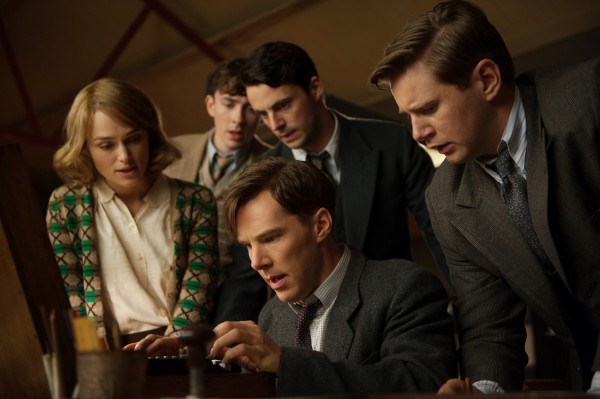In the opening sequence of The Imitation Game, protagonist Alan Turing says the following:
Are you paying attention? Good. If you’re not listening carefully, you will miss things. Important things. I will not pause, I will not repeat myself, and you will not interrupt me. You think that because you’re sitting where you are and I am sitting where I am, that you are in control of what is about to happen. You are mistaken. I am in control. Because I know things that you do not know. What I need from you now is a commitment. You will listen closely and you will not judge me until I am finished. If you cannot commit to this, then please leave the room. But if you choose to stay, remember that you chose to be here. What happens from this moment forward is not my responsibility. It’s yours. Pay attention.”
I was hooked from that moment on while accepting his challenge with great anticipation as if I were watching Inception for the very first time with no idea what I was about to get myself into. Moments before, as I walked into the packed movie theater, I knew nothing about a man named Alan Turing. My previous knowledge included statements like, “it’s that guy from Sherlock” and “is he actually British or just a really good voice actor?” Low and behold, I was drawn in by the popularity of the actor, but hooked within the first three minutes thanks to this witty opening monologue.
During World War II, Alan Turing was chose to serve for the British military intelligence to create a method that would allow Allies to decode the world’s most complex code system, Enigma. Turing had a long-lasting dream to create a machine with a brain, which would solve this unfathomable problem, which helped spread encrypted messages to Nazi’s around the world. As he assembles his team of British mathematicians and scientists alike in the 1940’s, he meets Joan Clarke (Keira Knightley), a brilliant woman surpassing all expectations of the times. Crushed by the pressures of her family, Joan makes an irrationally quick engagement decision with Turing, in an effort to have her join the problem-solving team and help make the machine a reality. The audience quickly learns that there are several important details about Turing’s life that make that decision even more loaded than it originally appeared.
The relationship between Clarke and Turing is complex, compelling, and cinematic. Benedict Cumberbatch meets and exceeds all preconceived expectations, with a hint of social awkwardness, but impeccable knowledge and understanding. I don’t predict any awards, given the lack of an individual scene or moment of mind-blowing performance, but pay homage to the performance.
In the final hour of the film, I struggled to grasp my own understanding of Turing. Was he a war hero or an outcast in historical context? The safe assumption was that Turing was a mad scientist of a problem-solver, claiming that Enigma was the most difficult problem in the world and he was going to solve it. Exiting the theater, I was mesmerized by Turing and his impact in World War II. The Imitation Game doesn’t simply give a face to a hero, but showcases a complex and intelligent story, providing both education and entertainment for all viewers alike.
See the film. It’s much more than just a Cumberbatch flick.
